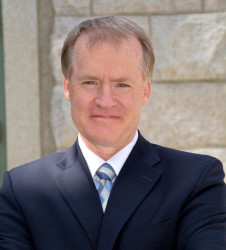Current Temperature
9.8°C
Province needs to brake on assessment changes; Hunter
Posted on September 3, 2020 by admin WWN FILE PHOTO
WWN FILE PHOTOBy Trevor Busch
Westwind Weekly News
Sweeping changes to the way oil and gas infrastructure is assessed in Alberta for tax purposes have been proposed by the province, and rural municipalities that draw a significant percentage of their budgets from this source have been raising their voices in a chorus of opposition.
Rural Municipalities of Alberta (RMA) has heavily criticized the potential move, arguing jurisdictions with oil and gas infrastructure could stand to lose an average of between seven and 20 per cent of local tax revenues for those properties’ assessed values under four possible scenarios in the first year of implementation alone. Province-wide, this is estimated to total roughly $290 million in lost tax revenue by 2021.
Taber-Warner MLA Grant Hunter has come out in opposition to the proposed changes being implemented, at least in the short term.
“I will say — and I’ve been on record saying this — that I’m advocating to the new minister, Minister Allard (Minister of Municipal Affairs), that we don’t proceed with these now, and my rationale for that is because I think with the new policing model and the cost of COVID, and a few other things that municipalities have had to bear the brunt of, I think that this is just not the right time. Now obviously I’m just one voice in our caucus and cabinet, and so the minister will have to make the final decision, but I’m advocating that we not do it at this time.”
Hunter, who also serves in the provincial cabinet as Associate Minister of Red Tape Reduction, still argues it was time to take a look at the tax assessment model for oil and gas in the province and how it applies to municipalities.
“At any given time — it was a very old model — so you have to research and figure out whether we’re being competitive with other jurisdictions, and doing that cross-jurisdictional analysis. We had to figure out whether people, businesses here can make money, if they can make a profit versus taking that money elsewhere, and investing elsewhere. So I think it was important to do that.”
Hunter believes that alternatives to this proposal, or other methods to ease the financial strain on the oil and gas sector, may arise from within the industry or municipalities themselves. But he warned that those companies which are capable of paying their property taxes should.
“I think that in talking with some of the municipalities and the businesses, I think those solutions are going to come right from the municipalities, and right from those oil and gas companies. I think they can collaborate together, and they can figure out what’s going to work. Obviously not paying your taxes is not a solution, but in the same sense, a lot of these businesses are flat on their back. They’ve gotten rid of as many people as they can, and laid of as many workers as they can, and they don’t have any money. But that’s not everybody, and there’s some — in my opinion — need to be honest brokers and pay their taxes.”
With a recent cabinet shuffle posting new Minister Tracy Allard to the Municipal Affairs portfolio, Hunter was reluctant to stamp a timeline on when the province will make a final decision on the proposed assessment changes.
“I think we need to give the minister some time to be able to get her feet underneath her, to allow her the ability to get a good understanding and be able to communicate with RMA (Rural Municipalities of Alberta) and municipalities. I know that she’s actually going around to the different parts of the province — Minister Madu (previous Minister of Municipal Affairs) had planned some different meetings in different parts of the province — so I believe the minister (Allard) is going to go ahead with that. So she’s going to get some good intel, and then stay tuned, we can figure some stuff out after that.”
Leave a Reply
You must be logged in to post a comment.

